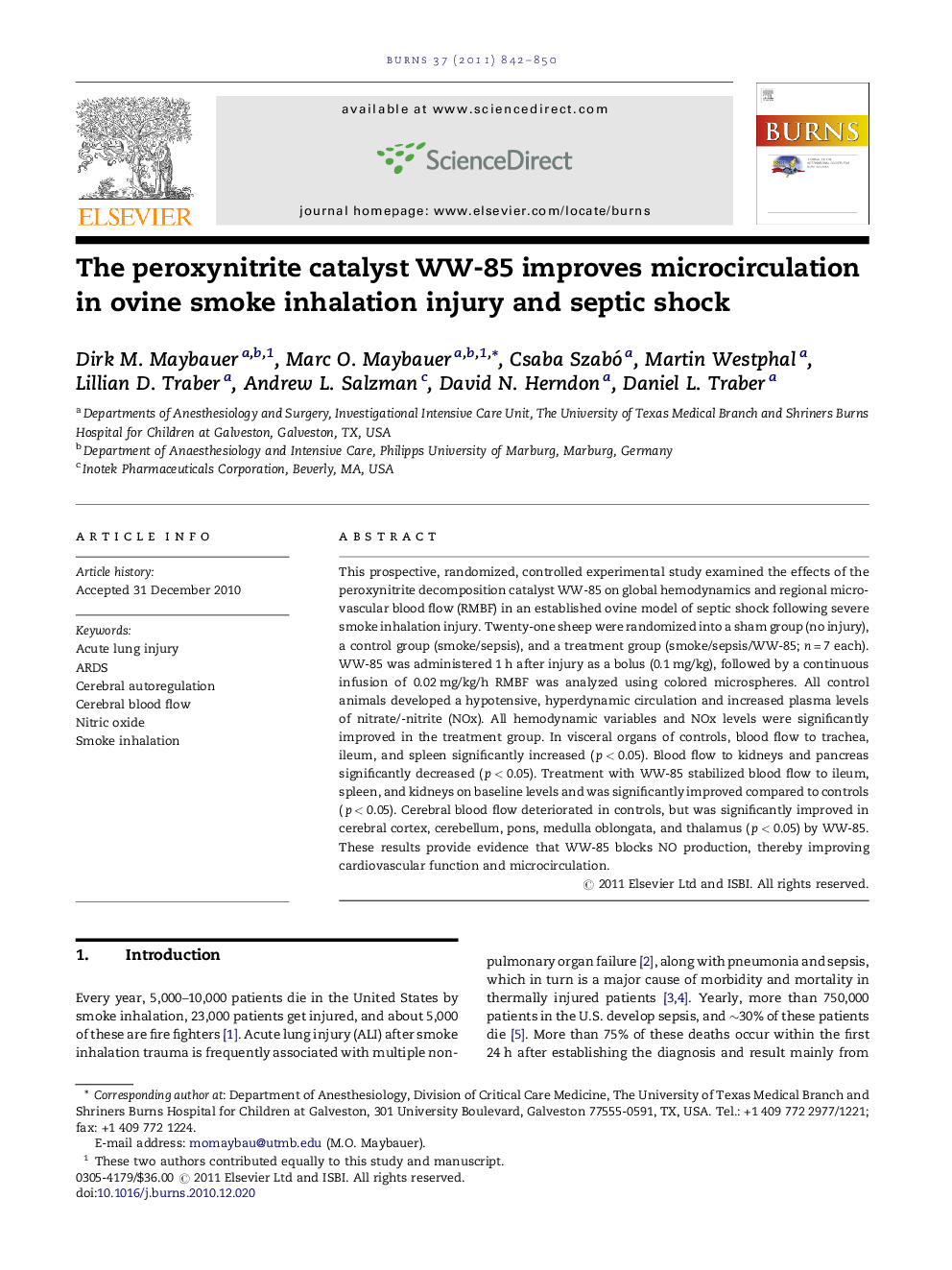| Article ID | Journal | Published Year | Pages | File Type |
|---|---|---|---|---|
| 3105141 | Burns | 2011 | 9 Pages |
Abstract
This prospective, randomized, controlled experimental study examined the effects of the peroxynitrite decomposition catalyst WW-85 on global hemodynamics and regional microvascular blood flow (RMBF) in an established ovine model of septic shock following severe smoke inhalation injury. Twenty-one sheep were randomized into a sham group (no injury), a control group (smoke/sepsis), and a treatment group (smoke/sepsis/WW-85; n = 7 each). WW-85 was administered 1 h after injury as a bolus (0.1 mg/kg), followed by a continuous infusion of 0.02 mg/kg/h RMBF was analyzed using colored microspheres. All control animals developed a hypotensive, hyperdynamic circulation and increased plasma levels of nitrate/-nitrite (NOx). All hemodynamic variables and NOx levels were significantly improved in the treatment group. In visceral organs of controls, blood flow to trachea, ileum, and spleen significantly increased (p < 0.05). Blood flow to kidneys and pancreas significantly decreased (p < 0.05). Treatment with WW-85 stabilized blood flow to ileum, spleen, and kidneys on baseline levels and was significantly improved compared to controls (p < 0.05). Cerebral blood flow deteriorated in controls, but was significantly improved in cerebral cortex, cerebellum, pons, medulla oblongata, and thalamus (p < 0.05) by WW-85. These results provide evidence that WW-85 blocks NO production, thereby improving cardiovascular function and microcirculation.
Keywords
Related Topics
Health Sciences
Medicine and Dentistry
Critical Care and Intensive Care Medicine
Authors
Dirk M. Maybauer, Marc O. Maybauer, Csaba Szabó, Martin Westphal, Lillian D. Traber, Andrew L. Salzman, David N. Herndon, Daniel L. Traber,
